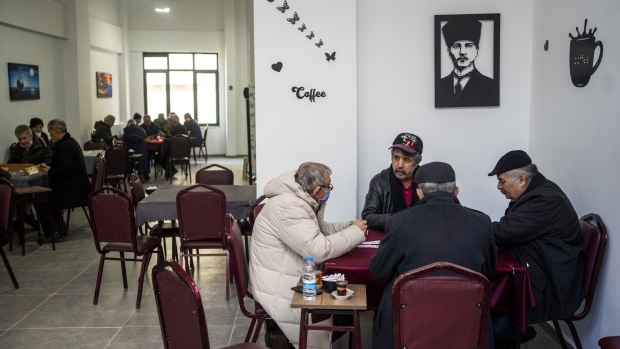Dec 29, 2022
Turkey to Earmark $13 Billion For Early Retirement Ballot Pledge
, Bloomberg News

(Bloomberg) --
Turkey’s government wants to set aside at least $13 billion a year to offer early retirement to millions of citizens in a key election pledge.
President Recep Tayyip Erdogan’s plan has been previously announced as he gears up for general elections in 2023 but the full scope and cost have been under discussion.
The government now estimates it will cost around 250 billion liras ($13.4 billion) in the first year, a senior official told Bloomberg, speaking on condition of anonymity because the calculations aren’t public.
The amount is likely to increase in the coming years as number of employees benefiting from the plan is expected to rise to five million, the official said.
The government plans to also offer a “bailout package” to employers who would have to give severance pay to workers affected. Turkey’s overall 2023 budget foresees 4.47 trillion liras spending.
The Treasury and the Finance Ministry declined to comment.
Erdogan said Wednesday some 2.3 million employees would be granted early retirement — regardless of age — if they fulfilled necessary work conditions. These include having been registered to the social insurance system by September 1999 and completing the required days of work.
As Turkey prepares for the polls, Erdogan’s been accelerating public spending, including raising the minimum wage by over 50% and providing cheap government-backed loans.
“The early retirement decision has imposed the most permanent burden on the budget among the decisions taken in recent years,” said Hakan Kara, the Turkish central bank’s former chief economist and a professor at Bilkent University in Ankara. “This will have a negative impact on the country’s risk premium and inflation.”
Turkey’s annual inflation is 17 times higher than the central bank’s official target of 5%, largely stemming from the central bank’s ultra-loose monetary policy. Under guidance from Erdogan, the bank lowered borrowing costs by 500 basis points this year, even as inflation soared. Officials now expect inflation to end the year at about 65%.
--With assistance from Beril Akman.
©2022 Bloomberg L.P.






